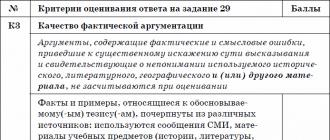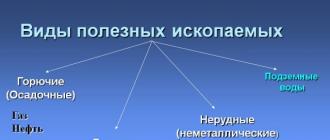Pecan - useful properties and harm. Pecan nut - useful properties and contraindications How to use, contraindications
Pecans are used as a substitute for animal protein, which is rich in nutrients and nutrients, including antioxidants. This exotic nut is especially indicated for the use of cores, thanks to unsaturated fatty acids. Their articles you will learn about the properties of the nut and its effect on the human body.
Pecan nut: benefits and harms
Consider the benefits and disadvantages of this product.
Pecan calories
 These nuts are just a pantry of energy, because there are 690 calories in 100 g! They are similar to walnuts in shape. But the similarity with the walnut ends there. The pecan nut has a sweet and delicate taste, it does not have bitterness, as in walnuts. Pecans also keep longer and are not prone to worms.
These nuts are just a pantry of energy, because there are 690 calories in 100 g! They are similar to walnuts in shape. But the similarity with the walnut ends there. The pecan nut has a sweet and delicate taste, it does not have bitterness, as in walnuts. Pecans also keep longer and are not prone to worms.
Its oily structure is rich vitamins, minerals and antioxidants. V mineral composition the fetus contains zinc, selenium, iron, magnesium, potassium, calcium, manganese. The nut contains B vitamins and vitamin E. A handful of pecans (28 g) contains 2% of the daily value of vitamin E - a recognized leader in the fight against the harmful effects of polluted atmosphere and solar radiation. It is also known as a remedy for infections of a viral and other nature.
Nutritional value of 100 g of nuts:
- calorie content - 690 Kcal, including fats - 601 Kcal.
- proteins contain 9 g, carbohydrates - 14 g.
Vitamin B group presented in pecans:
- Thiamine (B1). It is necessary as a participant in the breakdown of proteins and carbohydrates, as well as for the nutrition of nervous tissue and muscles.
- Riboflavin (B2). It takes part in the metabolism of proteins, carbohydrates, fats, helps cells divide and tissues grow.
- Niacin (B3). Necessary for the synthesis of fats, normal functioning nervous system.
- Pantothenic acid (B5). Affects the energy metabolism of proteins, fats, carbohydrates.
- Pyridoxine (B6). Involved in the formation of red blood cells, lipid synthesis, necessary to maintain the immune and nervous systems.
- Folic acid (B9). Required for the formation of red blood cells and other cells, indispensable in the formation of DNA.
 If the diet is enriched with these listed useful substances, then a lot of energy and vitality will appear. Nails will become strong and smooth, improve hair condition, the skin will turn into radiant, the elasticity of tissues will increase, the level of glucose in the blood will decrease, spasms and muscle cramps will go away.
If the diet is enriched with these listed useful substances, then a lot of energy and vitality will appear. Nails will become strong and smooth, improve hair condition, the skin will turn into radiant, the elasticity of tissues will increase, the level of glucose in the blood will decrease, spasms and muscle cramps will go away.
Pecans contain a lot of ascorbic acid, that is, vitamin C. It affects the synthesis of collagen and serves as an antioxidant. As part of the nut, the latter are represented by substances such as lutein, zeaxanthin, ellagic acid, beta-carotene. They protect the body from free radicals that act on cells in a destructive way. These substances saturate with energy, give vigor, prolong youth, protect against diseases of the cardiovascular system and oncology.
It also contains fat-soluble vitamin K, which is responsible for blood clotting and is necessary to saturate the bones with calcium.
Pecan Nut: Health Benefits
Why You Should Include Delicious Pecans in Your Diet:

The harm of pecans
 Many people know one very clever saying - it is good to eat everything in moderation. And the pecan is no exception! The harm that can result from the excessive use of this gift of nature is underestimated by some. Therefore, it must be remembered that positive properties can turn into negative ones if you do not know the consumption rates of this high-calorie product. For a healthy adult per day you need to eat no more than 80-100 grams of nuts. In this scenario, you need to eat it only 2-3 times a week. If the serving does not exceed 50 grams, you can use 3-4 times in 7 days.
Many people know one very clever saying - it is good to eat everything in moderation. And the pecan is no exception! The harm that can result from the excessive use of this gift of nature is underestimated by some. Therefore, it must be remembered that positive properties can turn into negative ones if you do not know the consumption rates of this high-calorie product. For a healthy adult per day you need to eat no more than 80-100 grams of nuts. In this scenario, you need to eat it only 2-3 times a week. If the serving does not exceed 50 grams, you can use 3-4 times in 7 days.
Contraindications:
- You need to be careful when including pecans in the diet if there is an individual intolerance to this product. There is one in 3000 cases when there is a severe allergic reaction to this product. The cause of the allergy is the proteins that the nut is so rich in. Side effects can be: dizziness, vomiting, urticaria, swelling of the larynx, difficulty breathing. But in general, the body tolerates this product well.
- With the abuse of pecans, gastrointestinal dyspepsia may occur. Although it has a positive effect on the stomach, liver, intestines and other organs, the nut is still a difficult food to digest. Deterioration of the condition may occur if fatty liver hepatosis is present, as well as pancreatitis in an acute course.
- Due to the calorie content of the nut, the likelihood of gaining excess weight is high. Therefore, both women and men should adhere to the recommended norms, then you can easily stabilize the situation and fix the weight at the optimal level. Otherwise, nuts will easily increase the number of kilograms, which will not be easy to handle. For example, to get rid of the same 690 calories, you need to run about 8 km.
- Until the age of five, nuts are not recommended, as this is fraught with allergic manifestations. Also, they should be avoided to give to children due to the fact that the body of a small child is still weak to digest and assimilate such heavy food.
 This is the so-called harm, which, of course, is incommensurable with the scale of the tangible benefits of the pecan nut, if included in the diet. Product well affects health, if you follow the norms of its consumption.
This is the so-called harm, which, of course, is incommensurable with the scale of the tangible benefits of the pecan nut, if included in the diet. Product well affects health, if you follow the norms of its consumption.
Pecan nuts are the most valuable product given to man by nature itself in order to stay healthy, full and happy.










In America, the pecan nut is popular and used in cooking, and the pecan tree has even become the official symbol of the state of Texas. It resembles in shape and shell, but its core is similar in taste and appearance to walnut. A number of advantages distinguish pecans from walnuts. It has no partitions. The seam and the base of its shell are completely closed and do not have a soft layer. This feature of the nut protects it from pests and prevents the kernel from becoming rancid.
It also differs from the walnut taste - it is sweetish, pleasant, without a drop of astringency. In terms of taste, this nut is recognized as one of the best.
Composition of pecan
All nuts are high energy value, but most are superior to pecans. The calorie content of this product is about 690 kcal per 100 g. The pecan core contains about 14% carbohydrates, 10% proteins, 70% fats. It contains calcium, magnesium, potassium, phosphorus, sodium, selenium, manganese, copper, zinc, iron, beta-carotene, tocopherol, ascorbic acid and B vitamins. This makes the nut a valuable product and gives pecan useful properties that allow it use not only in cooking, but also in medicine and cosmetology.
What is useful pecan
Eating walnuts in moderation can increase “good” cholesterol and lower “bad” cholesterol. Fatty acids, which are rich in pecans, protect the body from the formation of tumors, reduce the risk of heart attack and coronary disease.
The carotene present in the nut has a beneficial effect on vision and prevents the development of eye diseases. It helps to cleanse the blood of harmful substances and prevents vascular pollution. From the antioxidants that pecans contain, the benefit is brought to the whole body - they fight free radicals, which preserves its youth and beauty.
Pecan nuts are useful for beriberi, and to improve appetite. It is able to regulate testosterone levels, increase sexual desire, improve the functioning of the gastrointestinal tract, liver and kidneys.
Pecans are used to make oil, which is used for cooking and seasoning dishes. It is widely used in cosmetology and medicine, and more often than a nut, since it has a high concentration of nutrients. The best oil with the maximum amount medicinal properties are made by cold pressing. It has a delicate taste and an unobtrusive nutty smell.
What can harm a pecan
There are no special contraindications for the use of pecans, with the exception of individual intolerance. Do not abuse this product, as it will be difficult for the stomach to cope with a large number of nuts, this can lead to indigestion.
Fruits of the common pecan tree, or Carya pecan (Carya illinoinensis), which is common in the southeastern United States, the Caucasus, Central Asia and the Crimea.
Pecans are similar in appearance and taste to their relatives. walnuts. However, they are more refined in taste, with a smooth shell about 1 mm thick. The nut in the shell looks like olives, so it has a second name - "olive nut".
Translated from the Indian language, "pecan" means "a nut that needs to be split with a stone."
calories
100 grams of the product contains 691 kcal.
Compound
The composition of pecans includes a large amount of fat (up to 70%), vegetable protein, carbohydrates, vitamins (beta-carotene, B1, B2, B3, B4, B5, B6, B9, C, E, K), as well as mineral elements (calcium, sodium, potassium, magnesium, phosphorus, copper, iron, manganese, zinc, selenium, fluorine).
Usage
Pecans are consumed raw, dried or roasted. They are also added when cooking, for example, in desserts, meat and mushroom dishes, when baking bread, pies, cookies.
Pecan pie is a traditional American dessert. Nuts are also used to make pralines.
Pecan oil is made from pecans, which tastes like olive oil and is suitable for seasoning rice dishes, vegetables, mushrooms, fruit and vegetable salads, goes well with cheese, balsamic vinegar and seafood.
Storage
Pecans are one of the fattest nuts, which affects their shelf life. Since the fats in its composition are prone to rancidity, pecans are recommended to be stored frozen.
Beneficial features
Pecan nuts are recommended for anemia, beriberi, to improve appetite, relieve fatigue, regulate testosterone levels in the blood, normalize the function of the reproductive system, maintain the health of the liver, kidneys, gastrointestinal tract, to prevent the development of atherosclerosis, varicose veins, coronary heart disease lowering the level of "bad" cholesterol in the blood.
It helps to get rid of headaches, loss of strength, colds, improves immunity, slows down the aging process, takes part in carbohydrate-protein metabolism, nourishes muscle and nervous tissue, supports the nervous system, takes part in the formation of red blood cells, improves skin and hair condition.
It is applied externally as an oil to moisturize, nourish, rejuvenate the skin, treat sunburn, irritation from insect bites and fungal diseases.
Use restrictions
The use of pecans is contraindicated for people with individual intolerance, which can manifest itself through allergic reactions.
Limit their use is for people who suffer from fatty liver.
One serving of nuts should not exceed 100 grams. Otherwise, an abundance of fat can lead to digestive problems.
Pecan, walnut rich in vitamins and minerals such as: vitamin B1 - 44%, vitamin B5 - 17.3%, potassium - 16.4%, magnesium - 30.3%, phosphorus - 34.6%, iron - 14.1%, manganese - 225%, copper - 120%, zinc - 37.8%
What is useful Pecan, nut
- Vitamin B1 is part of the most important enzymes of carbohydrate and energy metabolism, providing the body with energy and plastic substances, as well as the metabolism of branched-chain amino acids. The lack of this vitamin leads to serious disorders of the nervous, digestive and cardiovascular systems.
- Vitamin B5 participates in protein, fat, carbohydrate metabolism, cholesterol metabolism, the synthesis of a number of hormones, hemoglobin, promotes the absorption of amino acids and sugars in the intestine, supports the function of the adrenal cortex. A lack of pantothenic acid can lead to damage to the skin and mucous membranes.
- Potassium is the main intracellular ion involved in the regulation of water, acid and electrolyte balance, is involved in the processes of nerve impulses, pressure regulation.
- Magnesium participates in energy metabolism, synthesis of proteins, nucleic acids, has a stabilizing effect on membranes, is necessary to maintain homeostasis of calcium, potassium and sodium. Lack of magnesium leads to hypomagnesemia, increased risk of developing hypertension, heart disease.
- Phosphorus takes part in many physiological processes, including energy metabolism, regulates acid-base balance, is part of phospholipids, nucleotides and nucleic acids, is necessary for the mineralization of bones and teeth. Deficiency leads to anorexia, anemia, rickets.
- Iron is a part of proteins of various functions, including enzymes. Participates in the transport of electrons, oxygen, ensures the occurrence of redox reactions and activation of peroxidation. Insufficient consumption leads to hypochromic anemia, myoglobin deficiency atony of skeletal muscles, increased fatigue, myocardiopathy, atrophic gastritis.
- Manganese participates in the formation of bone and connective tissue, is part of the enzymes involved in the metabolism of amino acids, carbohydrates, catecholamines; necessary for the synthesis of cholesterol and nucleotides. Insufficient consumption is accompanied by growth retardation, disorders in the reproductive system, increased fragility of bone tissue, disorders of carbohydrate and lipid metabolism.
- Copper is part of the enzymes that have redox activity and are involved in the metabolism of iron, stimulates the absorption of proteins and carbohydrates. Participates in the processes of providing tissues of the human body with oxygen. Deficiency is manifested by violations of the formation of the cardiovascular system and skeleton, the development of connective tissue dysplasia.
- Zinc is part of more than 300 enzymes, is involved in the synthesis and breakdown of carbohydrates, proteins, fats, nucleic acids and in the regulation of the expression of a number of genes. Inadequate intake leads to anemia, secondary immunodeficiency, liver cirrhosis, sexual dysfunction, and fetal malformations. Recent studies have revealed the ability of high doses of zinc to disrupt the absorption of copper and thereby contribute to the development of anemia.
The complete guide to the most useful products you can see in the app





